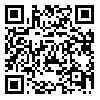Volume 3, Issue 2 (December 2017)
Elderly Health Journal 2017, 3(2): 99-106 |
Back to browse issues page
Download citation:
BibTeX | RIS | EndNote | Medlars | ProCite | Reference Manager | RefWorks
Send citation to:



BibTeX | RIS | EndNote | Medlars | ProCite | Reference Manager | RefWorks
Send citation to:
Hasanshahi M, Asadollahi A, Ostovarfar J, Ahmad N. Social Well-being within Aged Citizens in Ahwaz City, Iran. Elderly Health Journal 2017; 3 (2) :99-106
URL: http://ehj.ssu.ac.ir/article-1-102-en.html
URL: http://ehj.ssu.ac.ir/article-1-102-en.html
Department of Health Education and Promotion, Faculty of Health, Shiraz University of Medical Sciences, Shiraz, Iran
Abstract: (4370 Views)
Introduction: Declining social participation and reduced engagement in communal activities among Khuzistani citizens are specifically more evident among the elderly than other age groups. The aim of this study was to investigate the social well-being within Aged People in Ahwaz city.
Methods: Via cross-sectional study in 2016, data were collected during interview with 382 samples (195 male and 187 female) 60 years old and above in accordance to cluster-multistage sampling method and the sample size were estimated by Cochran Formula as a whole. Data collection instrument was the version of 33 items of the Social Well-being Scale of Keyes. Data were analyzed by SPSS in descriptive statistics, F-test & geographical information system. Sampling method was cluster-ratio based on municipal zones, ethnicity, and gender.
Results: Total scores of Scale of Social Well-being (Mean = 61.42, SD = 14.92) show the average rank of loneliness among participants (between 59.35 and 64.20). Arabs (Mean = 59.35, SD = 14.95) have a lower social well-being rank than other ethnic groups. The comparison of the social well-being by gender and ethnic characteristics illustrates that the variables have significant differences within the aged as well (N = 382, ρ £ 0.05).Regarding financial support and economic status of aged samples, those older persons who did not receive any financial support, had better rank of social well-being than aged who were supported (Mean = 64.89, SD = 16.22).
Conclusion: According to the results of the study, aged minority ethnic group women faced inequalities regarding social well-being in Ahwaz City, Iran.
Methods: Via cross-sectional study in 2016, data were collected during interview with 382 samples (195 male and 187 female) 60 years old and above in accordance to cluster-multistage sampling method and the sample size were estimated by Cochran Formula as a whole. Data collection instrument was the version of 33 items of the Social Well-being Scale of Keyes. Data were analyzed by SPSS in descriptive statistics, F-test & geographical information system. Sampling method was cluster-ratio based on municipal zones, ethnicity, and gender.
Results: Total scores of Scale of Social Well-being (Mean = 61.42, SD = 14.92) show the average rank of loneliness among participants (between 59.35 and 64.20). Arabs (Mean = 59.35, SD = 14.95) have a lower social well-being rank than other ethnic groups. The comparison of the social well-being by gender and ethnic characteristics illustrates that the variables have significant differences within the aged as well (N = 382, ρ £ 0.05).Regarding financial support and economic status of aged samples, those older persons who did not receive any financial support, had better rank of social well-being than aged who were supported (Mean = 64.89, SD = 16.22).
Conclusion: According to the results of the study, aged minority ethnic group women faced inequalities regarding social well-being in Ahwaz City, Iran.
Type of Study: Research |
Subject:
Special
Received: 2017/08/29 | Accepted: 2017/11/9 | Published: 2017/12/27
Received: 2017/08/29 | Accepted: 2017/11/9 | Published: 2017/12/27
| Rights and permissions | |
 |
This work is licensed under a Creative Commons Attribution-NonCommercial 4.0 International License. |






